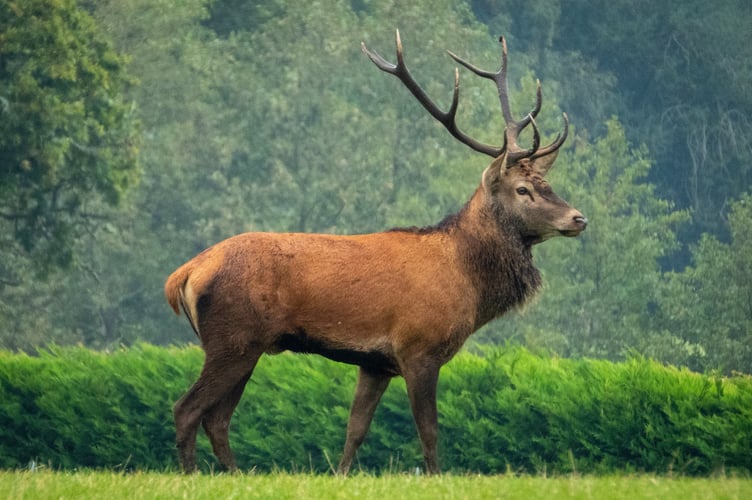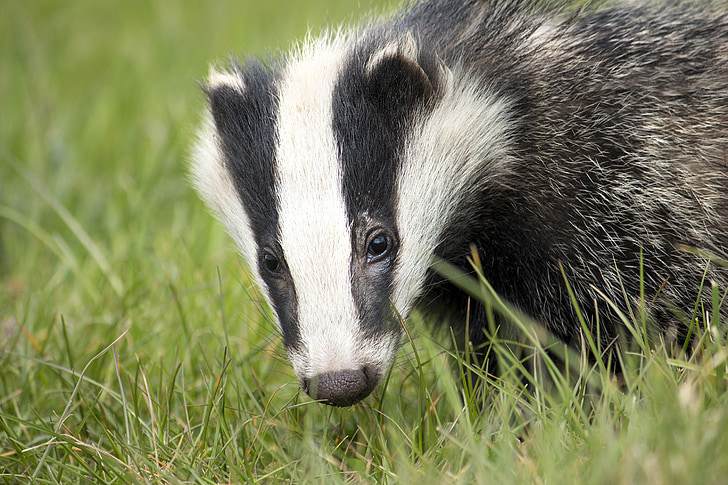THIS spring, volunteers across Devon are being asked to record sightings of mammals spotted in their gardens, local parks and other green spaces, in a bid to understand our changing environment better and encourage urban wildlife to flourish.
The annual ‘Living with Mammals’ survey is run by wildlife charity People’s Trust for Endangered Species (PTES). It’s a nationwide survey that records how wild mammals – from badgers and bats to water voles and weasels - are faring in all corners of the country. Importantly, it also helps to identify areas where conservation action is most needed.
Urban green spaces, and the biodiversity they support, are important to people and wildlife alike. The citizen science project is building a long-term picture of the ‘green health’ of these spaces, which can be a refuge from pressures in the wider countryside for many species, including hedgehogs.

Volunteers simply need to record sightings of any wild mammal (or the signs they leave behind such as footprints or droppings) each week online (ptes.org/lwm). Sightings could be from a garden, however big or small, allotment, or public green space such as parks, playing fields and cemeteries. PTES offers free advice online to help volunteers identify species and recognise tell-tale signs, so anyone can take part - you don’t need to be a wildlife expert! And even if it’s just a grey squirrel that visits, every record is valuable and part of the bigger picture.
David Wembridge, Mammal Surveys Coordinator at PTES explained: ‘'Recording which mammals you see is vital to conservation. Living with Mammals has been running for over 20 years and with the long-term dataset we have so far, we’re building a nationwide picture of where different species are living and how their numbers are changing.

'We’re lucky to have so many volunteers that take part every year, but more help is always needed. If you can spare some time each week, we hope you’ll join us in trying to help save as many of our much-loved species as possible.'
Since Living with Mammals began in 2002 thousands of dedicated volunteers have surveyed almost six thousand sites (5,571) across the UK, and have submitted over a third of a million sightings or signs of wild mammals to PTES. This includes some of the UK’s most well-known mammals such as hedgehogs, foxes, grey squirrels, and bats, but also some of the less-common mammals such as otters and pine martens.
Last year rabbits were only recorded at one in ten sites, a third of the number being seen when the survey first began. In contrast, bats were reported at a larger number of sites than seen in the past five years, and hedgehogs had their best year yet.
David added: 'People might be surprised to learn that wild rabbits – a species we think of as commonplace – are declining. Pinpointing a specific cause of this decline is tricky though and we need volunteers’ help to monitor the situation so conservationists can understand exactly what’s going on, and help.'
'The outlook for hedgehogs looks to be more encouraging. Last year’s data show they are recorded at the highest proportion of sites than in any previous year. We need to analyse the data more fully to understand the long-term trends, but the snapshot from last year is certainly encouraging.'
To take part in Living with Mammals 2023 (and to find out how to tell the difference between pine martens and polecats) visit: ptes.org/lwm.
And, if you’re on social media, PTES would love to see your mammal photos using #LivingWithMammals.



